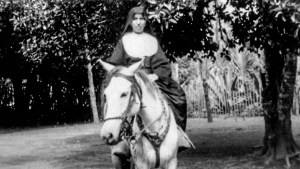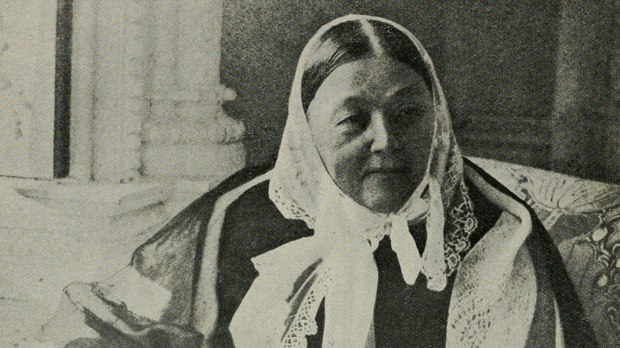Florence Nightingale was born on May 12, 1820, in Florence — hence her name — and then moved to England shortly after. The Nightingales were from the upper classes, so they gave their children a first-class education and took them to the most important social events, but Florence was more drawn to math and science.
On one occasion, her parents brought her and her sister on a trip through Europe, which was very common among young women of that time as part of their cultural formation. But for Florence, the trip was something more: it was where she discovered her true vocation in life. In her passage through different countries, she noted down statistics on the population and the number of hospitals in her personal diary. And it was then that she realized she wanted to dedicate her life to nursing.
Of course, her parents were opposed. A young woman like her was expected to marry a good suitor and not work (much less as a nurse), because working was for women from a lower social class.
Florence rejected various marriage proposals and didn’t rest until she was finally able to go to a nursing school in Germany around 1850. Afterwards, she returned to London and began working at a hospital on Harley Street, where she was quickly promoted to superintendent.
The Crimean War
When the Crimean War broke out in 1853, the number of casualties in the British Army increased every month. The War Secretary, Sidney Herbert, decided to call Nightingale, whom he had known for some time, and whom he trusted to care for his soldiers. It was the first time that a woman was put in charge of something like that, and Florence gathered more than 30 nurses from different religious orders to go to Scutari, in Turkey.
Upon arriving, the nurses were met with a scene even more horrifying than what they had imagined. Everything was very dirty: the floor was covered with feces, and the water was contaminated because they were on a big sewer, and there were rodents and insects all over the place. The conditions not only weren’t helping the troops to recover, but were actually making them worse. In fact, there were more deaths due to infectious diseases than to war wounds.
The first thing Florence did was deep clean the place and improve the ventilation. Then she installed a laundry to guarantee clean sheets, a kitchen to meet special food requirements, and even a library for entertainment.
She also liked to make the rounds at night with a lamp (something that no nurse ever did in her time) to make sure her patients were as comfortable and well attended as possible. The soldiers appreciated her sense of charity and her respectful and compassionate way of treating them, so some them began calling her “the lamp lady” and others “the angel of Crimea.” The result was notable: there were much fewer deaths.
The photo of Florence with her lamp appeared in various British newspapers and made her very popular. So when the war ended and she returned to England, she was received like a heroine. But she didn’t want fame, to the degree that she used a pseudonym in order to avoid being recognized. She even used the money that Queen Victoria gave her for her service to build a hospital and a nursing school.
Poems, songs, and scripts were written about her, leading many women (of all social levels) to want to be like her. Nursing became a socially honorable vocation and hospitals became clean and spacious places where sick people could recover with dignity.
Unfortunately, in Turkey she caught “Crimean fever” and never fully recovered. She had to remain in bed from age 38 until her death, but that didn’t stop her from continuing her humanitarian work for several more decades. During the war, as when she was a child, she had taken notes that became useful for epidemiology studies. She wrote various books for low-income people who did not have access to medicine, giving them home remedies. And she received visits from politicians and public figures, whom she advised in matters of public health and hospital functionality during war times.
At age 87, Florence became the first woman to receive the Order of Merit of the United Kingdom. Three years later, she died in her home in London. Her funeral was intimate and simple, just as she had asked.
Without a doubt, her knowledge of science and math was crucial for achieving all that she did, but it was her spirit of generosity and her concern for the needy that inspired her to put them to good use. Now, her birthday, May 12, is International Nurses Day, to recall the woman who helped thousands by putting her heart into that noble profession.

Read more:
Meet the wartime nurse jungle surgeon evangelist nun

Read more:
This amazing nurse’s singing fills dying cancer patient’s last days with joy (VIDEO)

Read more:
Family surprises nursing aide brought into their lives “as a sign from God”
This article was originally published in the Spanish edition of Aleteia and has been translated and/or adapted here for English speaking readers.

